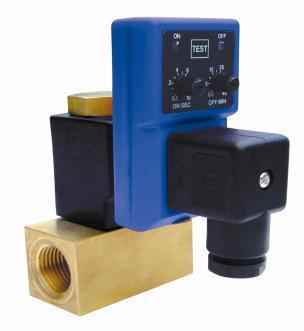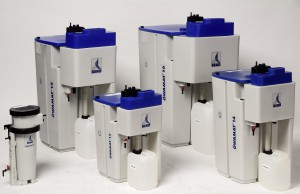Condensate is a chemically aggressive fluid which consists of mostly water but also some oil and dirt. It is an unavoidable by-product of air compression, and legislation regarding disposal needs observing carefully to avoid the substantial fines associated with non-compliance.
The Water Resources Act (1991) states that it is an offence to knowingly pollute controlled waters by the disposal of poisonous, noxious or polluting matter. Compressor condensate comes under this description and can result in the polluter being liable for fines of up to £20,000 or in some cases imprisonment. This legislation is levelled towards the responsible person, and sanctions are taken against the individual, not the Company.
There is other relevant legislation covering the correct disposal of condensate to include ‘The Environmental Protection Regulations 1991’ and ‘The Water Industry Act 1991’. Additionally, the H&S Commission Statutory Instrument 1989, No 2169 covering Pressure Systems and Transportable Gas Containers, makes it clear that from 1994 all new installations should have condensate drainage points feeding into an oil-water separator prior to final discharge. Furthermore, the British Compressed Air Society states categorically that ‘Under no circumstances should it be permitted to discharge untreated compressed air condensate to public surface water, sewers, or to ground’ (CAC 9407).
As highlighted, the importance of implementing a proper procedure for the removal of compressor condensate is imperative if you want to avoid punishment.
Airmech suggests the following pro-active measures to ensure compliance:
Install a timed/zero-loss drain on your air receiver – this allows condensate to be automatically drained from your air receiver. Zero-loss drains ensure that no compressed air is lost in the process, saving energy by not having to re-compress air lost when manually draining condensate.

Install an oil-water separator – with low maintenance costs, this will ensure that condensate is treated correctly. Following treatment, the condensate is 99% water of which you can dispose of legally down the foul sewer drain.

Proper disposal of waste oil – following above treatment of condensate, this will ensure that any waste oil is disposed of correctly with an authorised waste disposal company who is registered as a ‘hazardous waste producer’ or ‘licensed waste carrier’.
If the above measures are implemented, then any visits from the Health and Safety Executive should run smoothly. To discuss how Airmech can help you to be compliant, please call our main line on 02476 345658 or contact us through our website here.